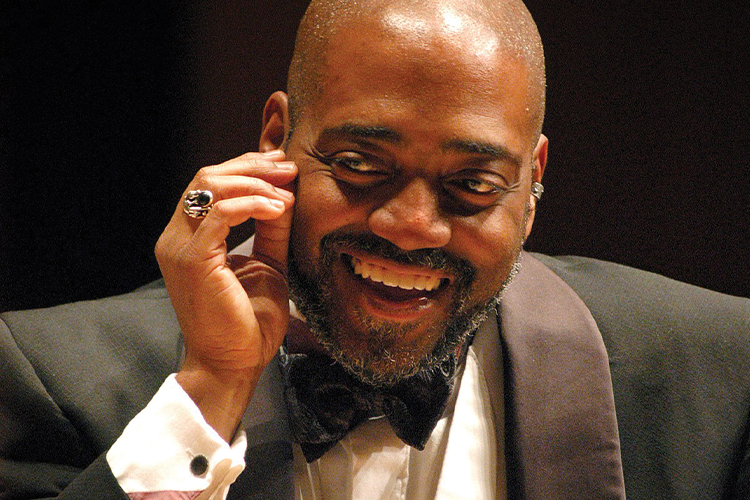
(1882-1943)
As an educator, choral conductor and composer, Robert Nathaniel Dett utilized folk music to express the depth and dignity of African American culture. He was born in Canada on October 11, 1882, and moved to the U.S. in 1893. Dett started playing piano by ear before taking formal lessons. After establishing himself as a performer, he published his first piece, After the Cakewalk, in 1900. Later, Dett studied piano and composition at the Oberlin Conservatory. In 1908 he became the first African American to obtain a bachelor of music degree from this institution.
Dett spent his academic career striving to facilitate Black excellence through education. He taught at several institutions including Lane College, the Lincoln Institute (now Lincoln University) and the Hampton Institute (now Hampton University). At Hampton, he was the Director of Music from 1913 to 1932. Under Dett’s leadership, the Hampton Choir earned an international reputation for performing arrangements of spirituals. He also won various accolades, including the Francis Boott Prize for his choral piece “Don’t Be Weary Traveler” and the Bowdoin Literary Prize for his essay “The Emancipation of Negro Music.” Dett later earned a master’s degree from the Eastman School of Music in 1932. He was also a founding member of the National Association of Negro Musicians (NANM) and served as its President from 1924 to 1926.
Dett incorporated spirituals and other African American musical idioms into his romantically inflected compositional style. He drew inspiration from his sponsor and fellow musician Emma Azalia Hackley, whose influence encouraged him to explore engaging with African American folk music in both traditional and innovative forms. To this end, Dett published two sets of folk songs: Religious Folk Songs of the Negro (1927) and The Dett Collection of Negro Spirituals (1936). His choral works, such as The Ordering of Moses, and his piano suites, including In the Bottoms, are particularly famous examples of how Dett celebrated African American heritage through classical music.

Elizabeth Durrant
Elizabeth Durrant recently received an M.A. in Musicology from the University of North Texas. She also earned a B.A. in English Literature (St. Mary’s College of Maryland) and a B.S. in Voice (Towson University)—as a result she is dedicated to exploring intersections between these disciplines. Her master’s thesis is titled “Chicago Renaissance Women: Black Feminism in the Careers and Songs of Florence Price and Margaret Bonds.” Elizabeth plans to pursue her PhD in musicology and continue exploring her interests in Black and female composers, twentieth-century neoromantic music, and American art song.
Sources
Brooks, Christopher. “Dett, R(obert) Nathaniel.” Oxford Music Online. January 20, 2001.
https://doi.org/10.1093/gmo/9781561592630.article.07669.
Schenbeck, Lawrence. Racial Uplift and American Music, 1878–1943. Jackson: University of
Mississippi Press, 2012.
Simpson, Anne Key. Follow Me: The Life and Music of R. Nathaniel Dett. Metuchen, New
Jersey: Scarecrow Press Inc., 1993.
Southern, Eileen. Biographical Dictionary of Afro-American and African Musicians. Westport,
Connecticut: Greenwood Press, 1982.




